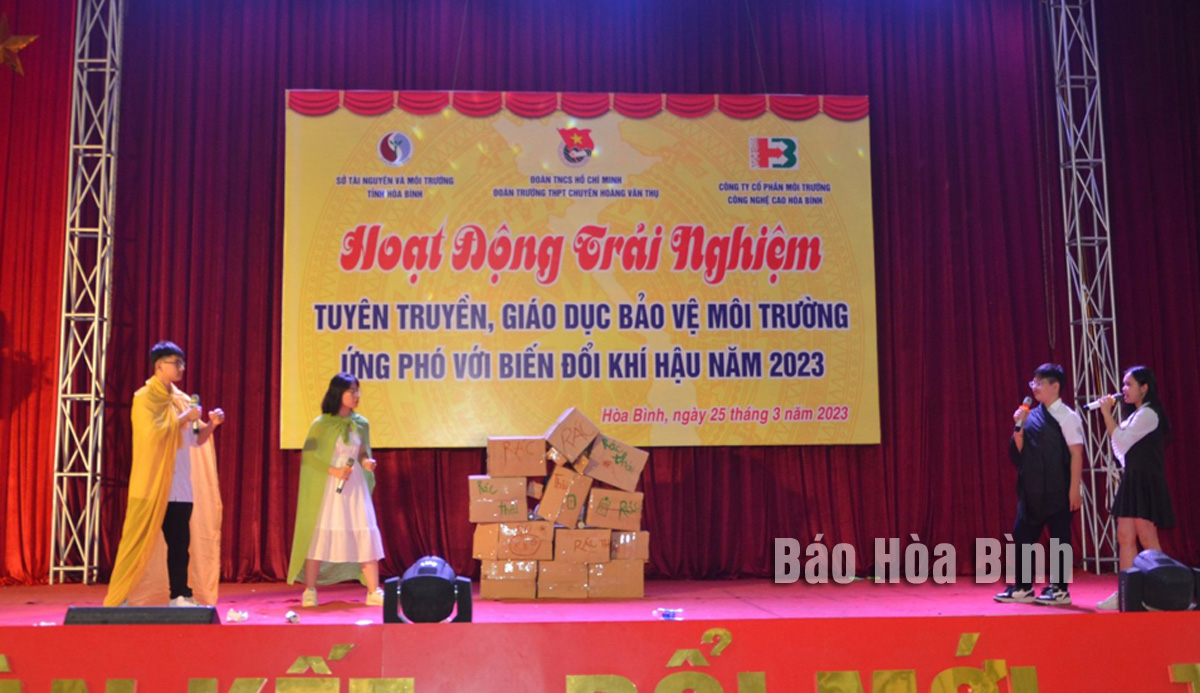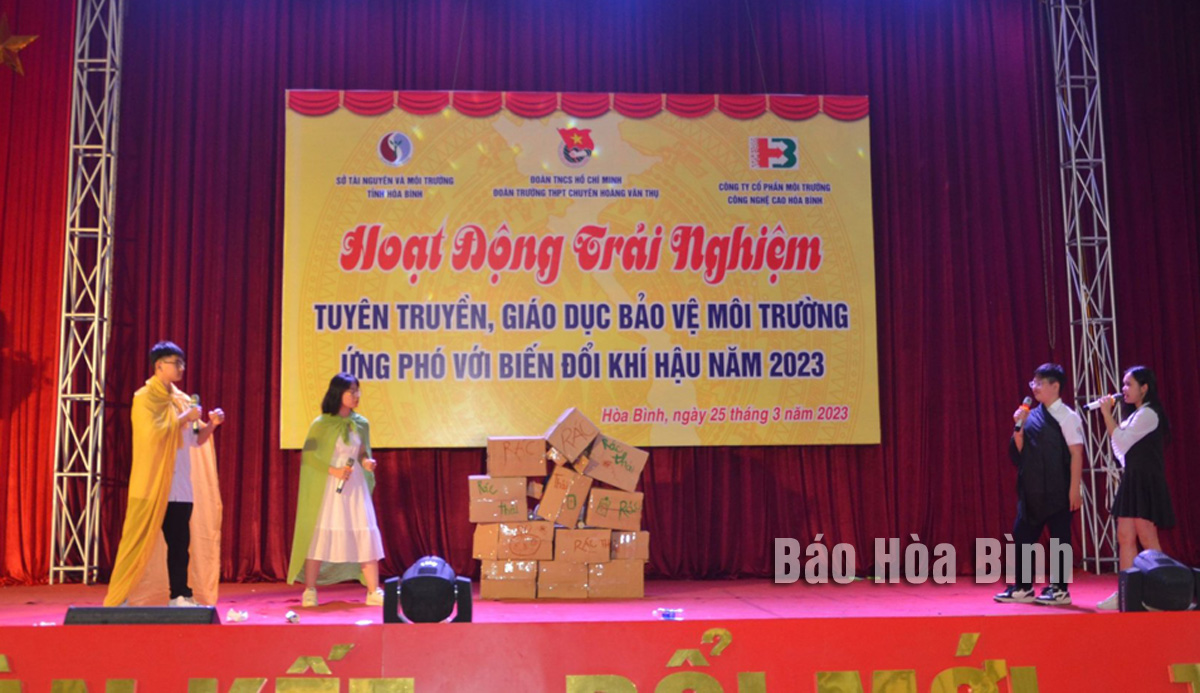
With effective models and methods, the natural resources and environment sector of Hoa Binh province has encouraged people to participate in environmental protection and climate change response activities, thereby contributing to helping the province achieve sustainable development.
Provincial Department of Natural Resources and Environment coordinates with Hoang Van Thu High School for the Gifted to organise an extracurricular activity to educate on environmental protection with the theme of "Green Living".
Nguyen Thi Hoa, Director of the Sub-Department of Environmental Protection under the provincial Department of Natural Resources and Environment, said that to serve the locality’s socio-economic development tasks, the sector has built and carried out a lot of scientific tasks such as investigation, survey, monitoring and evaluation of environmental components in different fields like agricultural and forestry production and processing, mineral exploitation and processing, production of construction materials, animal husbandry, health, and solid waste collection and recycling. It also implements environmental monitoring plans at 150 enterprises twice a year, and collects environmental protection fees for industrial wastewater and deposits for environmental rehabilitation and restoration for mineral exploitation projects.
After the process of environmental monitoring and supervision, the sector has reviewed, classified and made a list of establishments that cause environmental pollution and serious environmental; and conducted inspection and guidance on hazardous waste management.
In order to raise people's awareness, every year, the Department of Natural Resources and Environment proactively intensifies dissemination and education on environmental protection; organises many training sessions for state management officials, socio-political organisations at all levels and businesses in the province on the basic contents of the Law on Environmental Protection, the Law on Biodiversity and other important legal documents.
To date, the rate of household waste collection in urban areas has reached 85%, and 100% of hazardous waste has been collected and treated. The province performs well in planning, management and rational exploitation and use of water resources, as well as in environmental monitoring activities, and investigation and evaluation of wastewater sources released into river basins.
The Standing Board of the Hoa Binh provincial Party Committee has agreed in principle on a proposal by the Standing Board of the Party Committee of Hoa Binh city to gather feedback on the city’s 1:2000 zoning plan, which forms part of its broader urban development strategy.
Hoa Binh province has made notable progress in public administration reform and digital government development, with the satisfaction index among citizens and businesses reaching over 84%, according to recent government evaluations.
Thanks to great efforts by local authorities in recent times, the governance and public administration performance of Mai Chau district has been significantly improved.
In the afternoon of June 6, the Party Committee, the People's Council, the People's Committee and the Fatherland Front of Lac Son district solemnly held a meeting to celebrate the 139th anniversary of the district's founding (1886–2025) and the 79th anniversary of the establishment of the district's Party Committee (1946–2025). There was the attendance of Mr. Bui Van Thang, the Vice Chairman of the Provincial People's Council; Mr. Quach Tat Liem, the Vice Chairman of the Provincial People's Committee; Ms. Dang Bich Ngoc, the Deputy Head of the National Assembly Delegation of the province; as well as the former leaders of the province and district through various periods, who are the natives of the district.
Implementing the Politburo’s Resolution No. 57-NQ/TW on breakthroughs in science – technology, innovation, and digital transformation is a golden opportunity for the northern mountainous province of Hoa Binh to renew growth model, improve competitive edge and shorten digital gap.
Resolution 57-NQ/TW, issued by the Politburo on December 22, 2024, identifies sci-tech, innovation, and digital transformation as strategic breakthroughs to build a developed and prosperous nation. In Hoa Binh province, this spirit is not just a slogan, it’s being put into action through concrete initiatives that form a "new development triangle”: digital citizenship, digital economy, and digital administration.



